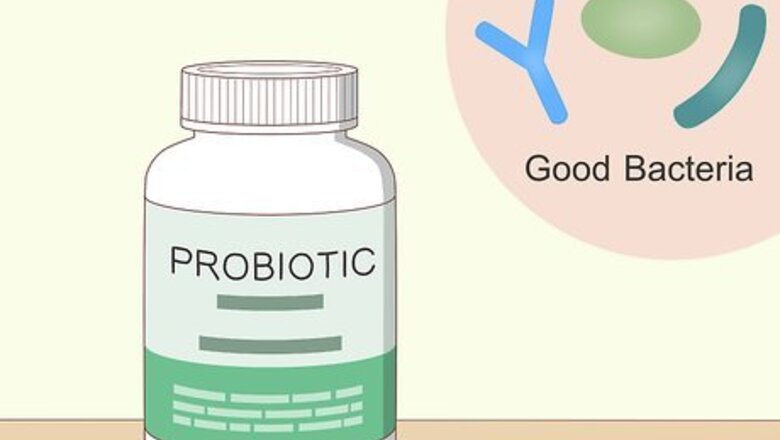
views
Fighting the Bacteria
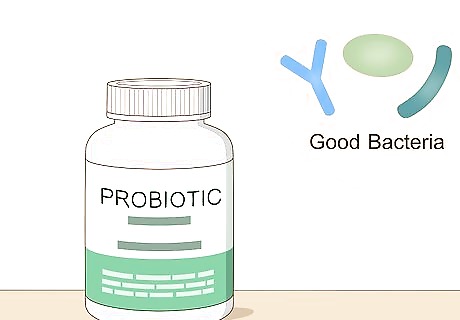
Take probiotics to boost the healthy bacteria in your stomach. Probiotics, particularly Lactobacillus, increase the number of healthy bacteria in your gut. This may not actually kill the H. pylori, but it can prevent imbalances and stop bad bacteria from growing out of control. This could prevent a H. pylori infection from turning into an ulcer. A general dose for probiotics ranges from 1 to 10 billion units per day. This sounds like a lot, but it’s usually only 1 or 2 tablets. Follow the dosing directions on the product you use. If you need a probiotic brand recommendation, ask your doctor or pharmacist for the best one for you.
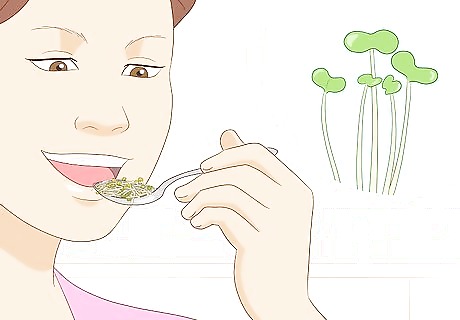
Eat broccoli sprouts to treat the infection. Broccoli is a traditional treatment for numerous health problems, and there’s some evidence that sprouts can prevent H. pylori from colonizing your stomach. Try eating 70 g (0.4 cups) of broccoli sprouts each day for 8 weeks to see if your symptoms improve. Studies also showed that H. pylori levels returned after broccoli treatment stopped, so this probably doesn’t kill the bacteria entirely. Broccoli sprouts aren't the same as mature broccoli. They're immature sprouts that look like small alfalfa plants.
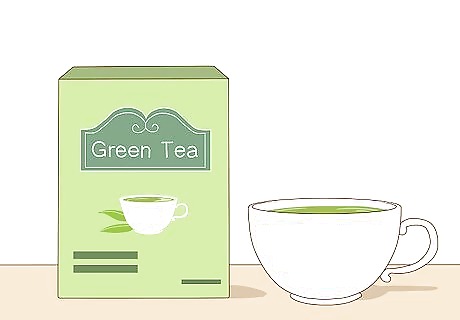
Drink green tea to inhibit bacterial growth. The antioxidants and nutrients in green tea seem to stop H. pylori from growing. This might not kill it, but could prevent the infection from turning into an ulcer. Green tea is generally safe for use as long as you don’t have too much. The recommended amount is 2-3 cups per day, but up to 5 is safe. Green tea does have caffeine, so use a decaf type if you’re having it close to bedtime.
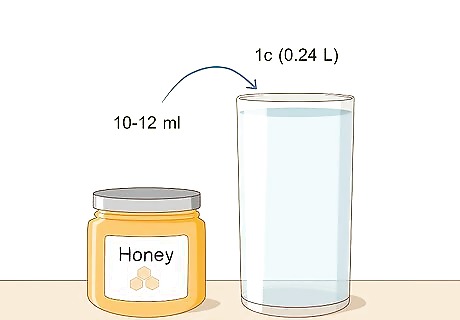
Try honey to kill the bacteria. Honey is naturally antibacterial and could prevent H. pylori from growing in your stomach. Try mixing 10-12 ml of honey into 1 c (0.24 L) of water each day and drinking it. Continue this for 2-4 weeks.
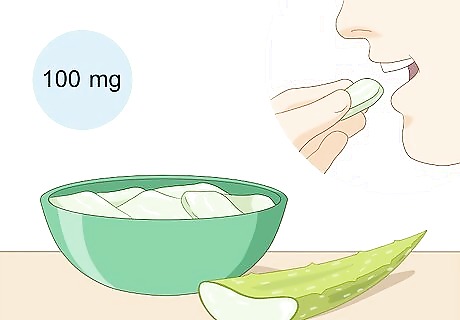
Take aloe vera to soothe your stomach. Aloe vera gel may also be effective for killing H. pylori bacteria and soothing stomach pains. Try taking 100 mg of aloe vera gel extract to see if this works for you. Aloe is most effective if taken alongside an antibiotic, so it might not work well on its own.
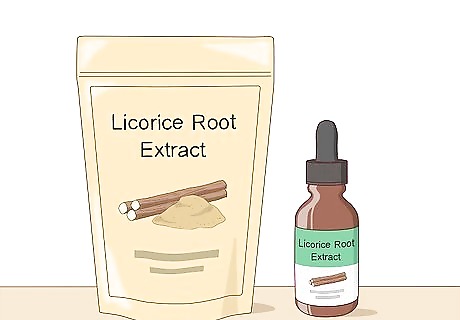
Stop bacteria from bonding to your stomach with licorice root. Licorice root is a popular treatment for an upset stomach, and could fight H. pylori. Try taking 250 mg of licorice root extract 3 times a day for 30 days to see if this helps. Licorice root also comes as an herbal tea, but this may not be strong enough to treat an ulcer.
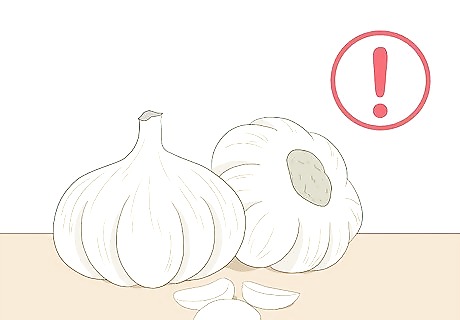
Use garlic with caution. Garlic is a traditional treatment for many ailments, and might have some effect on H. pylori. However, the results are very inconsistent. Furthermore, garlic could make heartburn worse, so it might make your pain worse if you have an ulcer. Consider this a last resort if nothing else works.
Soothing Your Stomach
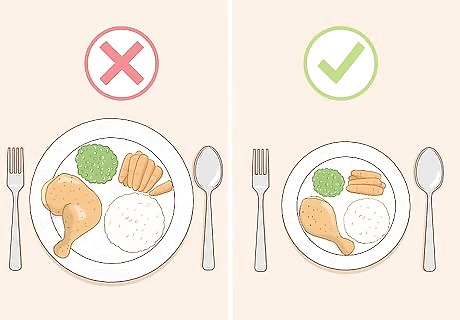
Eat smaller meals so you don’t feel as full. Overeating increases the amount of acid in your stomach and could make your pain worse while you’re fighting an ulcer. Limit your meal sizes and don’t overeat so you don’t trigger your symptoms. Until your ulcer heals, it’s better to eat a few smaller meals throughout the day instead of 3 large ones. This prevents you from feeling too full. For an easy trick, try to eat slower than you usually do. That way, you’re more likely to feel full sooner and can avoid eating too much.
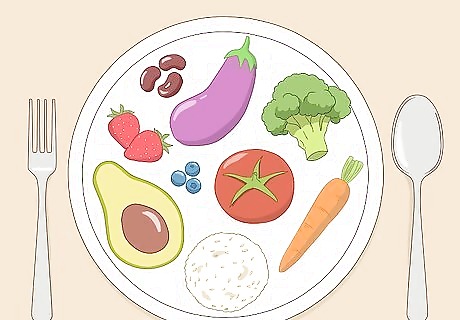
Include more fiber in your diet. Fiber aids your digestion and can reduce ulcer pain. Eat plenty of fruits, vegetables, whole grains, nuts, and legumes to help food move through your digestive system. Continue this high-fiber diet after you recover because fiber can prevent ulcers from coming back as well. As a general recommendation, women should get 21-25 g of fiber each day and men should get 30-38 g. You can also get more fiber from dietary supplements, but doctors recommend getting as much as possible from your diet first.
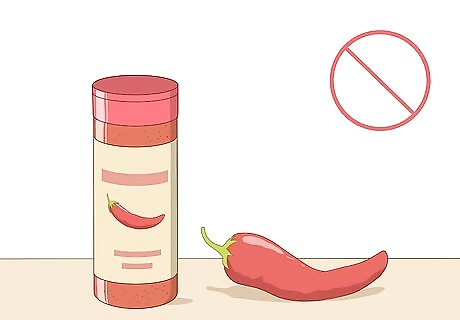
Avoid spicy foods if they upset your stomach. Contrary to popular belief, spicy foods don’t actually cause ulcers. However, they can irritate existing ulcers and make the pain worse. If spicy foods do upset your stomach, then stick with mild or bland foods without spices until you recover. If you like spicy foods, try adding a little bit of spice at a time. Keep adding more until you start to feel uncomfortable, and then you’ll know the amount you can handle. Spicy foods don’t actually make ulcers worse, so you can eat spices if they don’t bother your stomach.
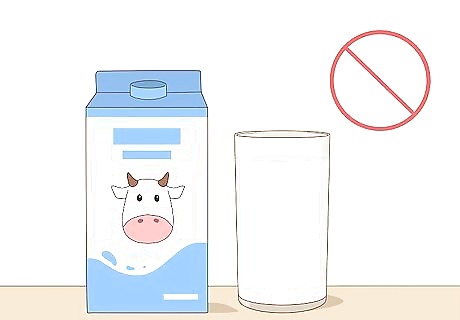
Stop drinking milk to keep stomach acid under control. Milk is a popular remedy for stomach pain. While it does reduce the pain initially, it could cause more acids in your stomach later on, making your pain worse. It’s best to avoid milk until your ulcer heals.

Reduce stress so your ulcer doesn’t get worse. Many people also think that stress causes ulcers, but this isn’t true. However, stress can increase the amount of acid in your stomach and make pain from an ulcer worse. Do your best to keep your stress under control so you don’t cause more discomfort. Some relaxation activities like deep breathing, yoga, and meditation can all reduce your stress. Try spending 15-20 minutes each day doing one of these activities. Doing things you enjoy is good for reducing stress as well, so make some time for your hobbies and interests each day.
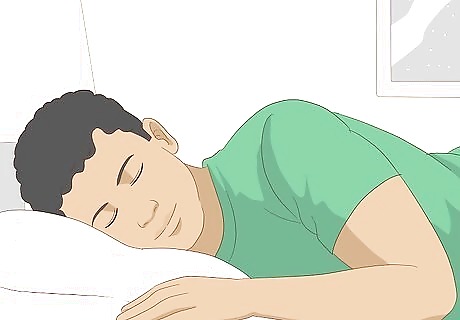
Support your immune system by getting plenty of sleep. You need a strong immune system to fight H. pylori and heal your ulcer, so getting plenty of sleep is essential. Do your best to sleep 7-8 hours each night so your body is strong enough to fight the infection. If you have trouble sleeping, try winding down for an hour before bed. Turn off your computer, phone, and TV. Do relaxing activities like reading or taking a bath to get ready for bed.
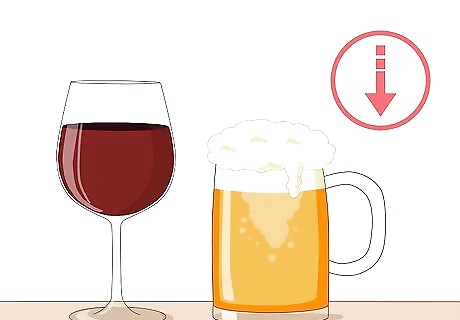
Reduce your alcohol intake until your ulcer heals. Alcohol can irritate your stomach and make ulcer pain worse. If you regularly drink, limit yourself to no more than 2 drinks per day until your ulcer heals. Alcohol can also interact with the medications you’ll have to take to treat your ulcer, so it’s even more important to abstain until your ulcer heals.
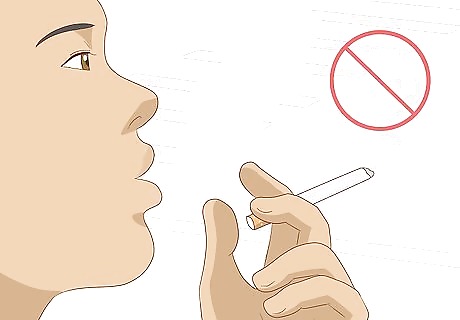
Quit smoking or don’t start in the first place. Smoking can thin your stomach lining, which could make ulcers worse or cause them to start. If you smoke, then it’s best to quit as soon as possible. If you don’t smoke, then avoid starting altogether. Even if your ulcer heals, you’re at risk for another one if you continue to smoke afterward. Secondhand smoke can cause health problems too, so don’t let anyone smoke in your home.
Conventional Treatments
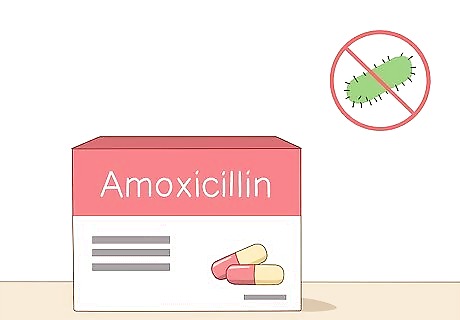
Take antibiotics to kill the bacteria. Since H. pylori is a bacterial infection, antibiotics are the most reliable treatment. The most common type is amoxicillin, which is effective in killing the bacteria. Take this medication exactly as your doctor instructs you to. Always complete the entire course of antibiotics to make sure the infection is completely cleared. Don't stop early unless your doctor tells you to.
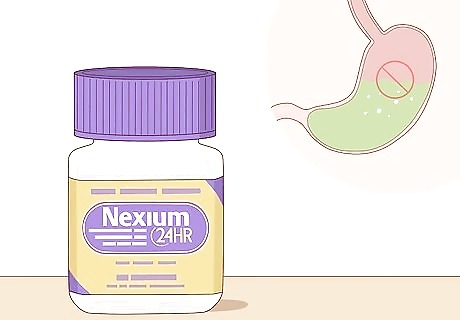
Suppress stomach acid with proton pump inhibitors. These drugs, PPIs for short, don't actually kill H. pylori. However, they prevent your stomach from producing too much acid, which can make you more comfortable while you heal. This is especially helpful if you have an ulcer. Common PPIs include omeprazole (Prilosec), esomeprazole (Nexium), lansoprazole (Prevacid), and pantoprazole (Protonix). Take the one that your doctor prescribes.
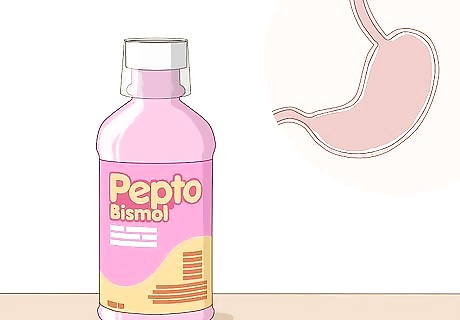
Coat your stomach with bismuth medications. Bismuth doesn't kill bacteria or prevent your stomach from producing acid, but it does increase the mucus layer protecting your stomach. This helps guard your stomach against acids and can prevent heartburn or pain. Taking these medications until the infection clears will make you much more comfortable. The most common bismuth medication is Pepto-Bismol. This is available over-the-counter without a prescription.













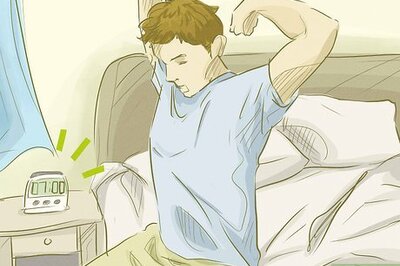






Comments
0 comment